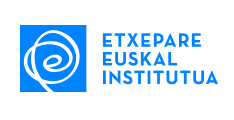Anna Bitong. From my car window, I watched Spain transform. From Madrid in the country’s centre to the coastal north, empty land and grazing cows turned to misty green mountains and a shimmering harbour full of boats. I had driven north before, but this was the first time I’d stopped in Getaria, a medieval fishing village with beaches, vineyards and the 15th-Century baptismal church of native son Juan Sebastian Elcano, the first person to sail around the world.
In the early afternoon, on a narrow street, hot smoke rose from seabream sizzling on an outdoor charcoal grill. Two men standing behind a seafood delivery truck were speaking a language I’d never heard before. The staccato sounds they exchanged mingled with the light drips of rain on the pavement that March day. Later, I realised they were speaking an ancient language that has teetered on the brink of extinction.
Euskara, spoken in the autonomous communities of Navarre in northern Spain and the Basque Country across northern Spain and south-western France, is a mystery: it has no known origin or relation to any other language, an anomaly that has stumped linguistic experts for ages.
“Nobody is able to say where [the language] comes from,” according to Pello Salaburu, professor and director at the Basque Language Institute at The University of the Basque Country in Bilbao. “Scholars used to research this problem many years ago, but there are no clear conclusions.”
The distinct language is a point of pride for Basques. An estimated 700,000 of them, or 35% of the Basque population, speak it today. But it was a target for Spanish dictator Francisco Franco, who enforced the use of Spanish and forbade other languages, including Euskara (also called Basque), during his rule from 1939 to 1975.
When Karmele Errekatxo was a child in the 1960s and 1970s, she attended secret classes in a church basement in Bilbao, Spain, the Basque Country’s most populous city and home of the famed Guggenheim Museum. It was here that she learned the forbidden language of Euskara.
If you take language from a place, it dies
“Language is the identity of a place,” said Errekatxo, now a teacher in Bilbao who speaks Euskara in her classroom. “If you take language from a place, it dies. The dictatorship knew that and wanted Euskara to disappear.”
A group of parents set up a hidden Basque school, or ikastola, in 1944. By 1970, these secret learning institutions had more than 8,000 students, according to Salaburu.
Salaburu was required at his 1951 baptism to take the name ‘Pedro Maria’, the Spanish version of his Basque name. He spoke only Euskara as a child and learned his first Spanish words at a non-Basque school in Navarre when he was six years old.
(read here the whole article)



 Lagun bati bidali
Lagun bati bidali Komentarioa gehitu
Komentarioa gehitu








